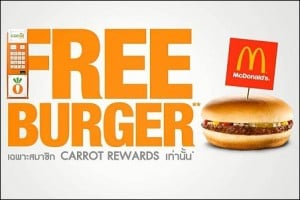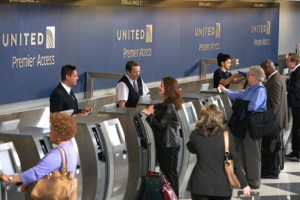This just might be a possible question asked by a McDonald’s employee in the imminent future. Currently, the only reward you get for eating at McDonald’s is: well, the food itself. McDonald’s does not have a rewards card to attract customers to stop by because of additional points or freebees. Though, it sure can use one.
The traffic in McDonald’s in on a steep decline. Frankly, their forecast also suggests a continuing future decline. We have previously discussed in class the need to identify the reason for having a negative trend and making adequate changes and adjustments to avoid declining sales. This is exactly what McDonald’s is doing. They are reconsidering their strategy and trying to come up with a way to retain their clients, meanwhile attract more clients who can make up for the decline over the recent years.
To create this new traffic, McDonald’s designed what you can almost call a new product, a loyalty card, which it is planning to introduce in the upcoming days. Other food chains such as Panera, Subway, and Starbucks already have some form of a loyalty card, and they all have seen a greater rate of return after its introduction. People love when they get a good deal: a purchase made on sale or just a freebee. Therefore, people are choosing places that reward them for their loyalty with rewards-only deals, or accumulation of points which eventually leads to some discount. This also helps keep customers loyal.
The three major fast food chains: McDonald’s, Burger King and Wendy’s have yet to come up with a loyalty card. Being the first to introduce one can definitely be a competitive advantage for McDonald’s. This can help them further differentiate themselves from the other two.
In addition, McDonald’s market consists of people who are relatively small spenders, which is what brings them to McDonald’s, a food chain with fairly low prices. Introducing a loyalty card that can save them even more money or get them a better deal will definitely be something these types of customers are interested in. Another amazing benefit of a loyalty card is that companies can track client’s purchases. They can then use this information to customize their marketing with coupons and sales that are specific to your interests. Therefore, this is an ideal solution for the decreasing sales at McDonald’s. The loyalty card will keep clients from going to the other places, which do not reward them for coming in.
Although many companies focus on improving their processes through efficiency and cost cutting, without sales, there is no need for production at all. McDonald’s is currently in need of increased sales and traffic. And although investing in the design and creation of a loyalty card can be quite costly, I believe it will definitely pay off with increased sales and loyal customers.
Do you think the loyalty card will keep their clients loyal? increase traffic? increase sales?
What is your experience with loyalty cards?


